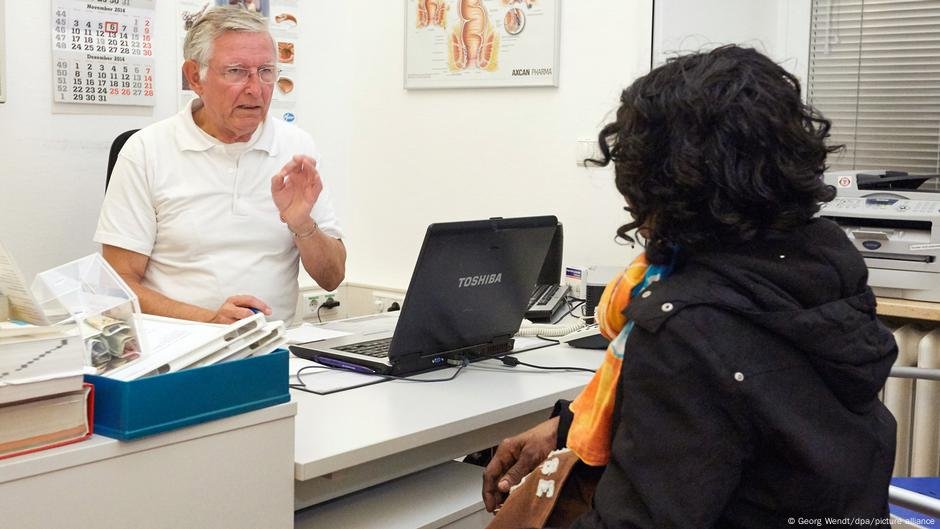A new study has analyzed laws in 28 countries in the European Union plus the United Kingdom. Key findings indicate that while labor rights are generally better protected than social rights, the legal guarantees for irregular migrants when accessing and enforcing those rights rarely match those afforded to regular citizens.
Rights for irregular migrants vary widely across Europe, according to a new study that analyzed the laws covering labor and social rights in 28 countries.
The study "Measuring and Analysing the Social and Labour Rights of Irregular Migrants: New Indicators for Twenty-Eight European Countries" reveals that while labor rights are generally better protected than social rights, the legal guarantees for irregular migrants when accessing and enforcing those rights rarely match those afforded to citizens.
Researchers from the European University Institute, Uppsala University, and the University of Zagreb developed a dataset (IRMIGRIGHT) that maps how 28 European Union countries and the United Kingdom regulate social and labor rights for irregular migrants. The findings raise serious concerns about limited access, discrimination, and weak enforcement mechanisms affecting irregular migrant populations across Europe, say the study authors.
Clare Fox-Ruchs, one of the report’s authors, explained to InfoMigrants that the study examines how national governments manage immigration amid two conflicting public perceptions: on the one hand, people who might hold anti-migrant views and belive that irregular migrants have too many rights (for instance being offered free accommodation when other groups in society might feel hard done-by in comparison); on the other, that they have none at all due to their lack of legal status. This tension highlights a gap between the rights irregular migrants are entitled to and their ability to access or claim them.
Read AlsoSurvey reveals perceptions of racism towards Africans in Italy
Rights as freedoms
The researchers focused on a wide range of social and labor rights that are especially relevant to the everyday lives of irregular migrants in European host countries. The list includes primary health care, access to social housing, and access to education.
The IRMIGRIGHT project assesses how 28 European countries protect irregular migrants across sixteen key social and labor rights, using a new set of indicators that go beyond simply identifying whether rights exist on paper. The analysis looks at four core dimensions: coverage, adequacy, costs, and agency.
According to Fox-Ruchs, the four dimensions aim to understand not just if rights are granted, but how meaningful and accessible they are in practice.
This approach allows researchers to evaluate the quality of rights protection from the perspective of irregular migrants' real-life capabilities: can they access the services, afford the costs, and exercise these rights without fear of punishment or deportation?
To focus specifically on how irregular migration status affects access to rights, the study excluded people who have since acquired a form of protected status. These include, for example, survivors of trafficking or failed asylum seekers granted "tolerated" or "Duldung" status in countries like Germany and Austria—categories that often come with expanded rights not available to the broader irregular migrant population.
Disparity in laws
While a small set of core rights is widely guaranteed to irregular migrants across Europe—including emergency and maternity care, education for children, back pay for wages, and workplace safety—accessing these rights is far from straightforward. Even when laws exist, the effectiveness of those rights varies significantly across countries.

As an example, Fox-Ruchs explained that while maternity care is widely guaranteed for irregular migrants, this is only in emergency cases. "Pre-natal and post-natal check-ups, which are an essential part of the maternity care in detecting and preventing associated illnesses such as pre-eclampsia, are not included."
One of the most concerning findings is that no European country offers clear protection from immigration enforcement when irregular migrants attempt to exercise labor rights, such as pursuing potential unpaid wages.
Old EU and new EU
The analysis also reveals stark disparities between older EU member states, who were part of the EU 15and the countries that have joined more recently.
"With the exception of Greece, Ireland, and the UK, the traditional EU countries generally offer better protections under national law than newer member states," said Fox-Ruchs.

These differences reflect political and institutional choices, not just economic capacity—wealthier countries don’t always guarantee better rights, Fox-Ruchs explained.
The study underscores the tension many countries face between upholding basic human rights and enforcing immigration control. In this context, described as increasingly "hostile" to irregular migrants, European countries are making very different choices about which rights to prioritize, how accessible they make them, and what risks migrants face for exercising them.
Ultimately, Fox-Ruchs said, the study highlights the uneven and often fragile nature of rights protection for irregular migrants across Europe. It calls attention to the need for stronger safeguards, especially around enforcement risks, to ensure that legal rights can be meaningfully accessed in practice.
